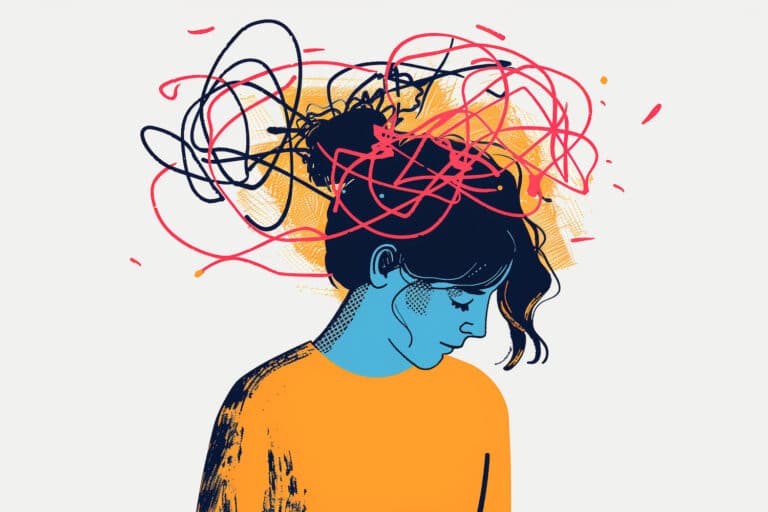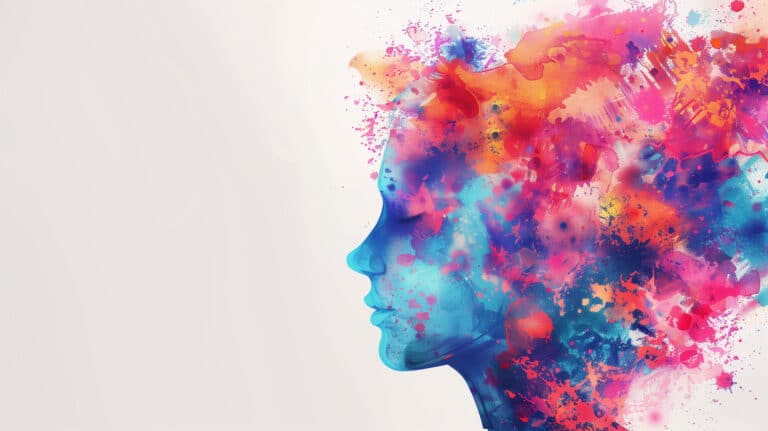Anxiety is common and affects millions of people every year. A study from the CDC found that about 15% of Americans had experienced anxiety symptoms within the past two weeks.1 Anxiety is also one of the most common co-occurring diagnoses among people with eating disorders. There are a few things you need to know about the relationship between anxiety and disordered eating.
Anxiety Disorders
Anxiety is more than stress. It involves worrisome thoughts so frequently and intensely that it makes it hard to focus on other things. Symptoms of anxiety include:2
- Trouble managing worrisome thoughts
- Feeling restless or tense
- Difficulty concentrating
- Irritability
- Difficulty sleeping
- Frequent stomach aches, headaches, or muscle soreness
Anxiety can have a significant impact on your quality of life, making it difficult to be present at work, school, or with loved ones. There are different types of anxiety disorders, including generalized anxiety disorder, social anxiety, panic disorders, separation anxiety disorder, and phobias.2
Food Anxiety Symptoms & Eating Disorders
Food anxiety is a significant component of eating disorders. People who struggle with food have elevated levels of anxiety during meals. This is often related to fears of gaining weight, fear of being judged for what they eat, or anxiety with specific foods. For those with a co-occurring anxiety disorder, fear of eating may be amplified.
The Link Between Anxiety & Eating Disorders
Research shows that 46% of people with anorexia, 80% of people with bulimia, and 65% of people with binge eating disorder will experience an anxiety disorder at some point in their lives.3 Not everyone who struggles with disordered eating also has an anxiety disorder, but having high anxiety levels can make it challenging to recover. Malnutrition can also have an impact on the brain and often increases symptoms of anxiety.
Disordered eating patterns, such as restricting how much you eat, bingeing, and purging, are coping mechanisms. For some people, regularly used methods of unhealthy coping mechanisms used by individuals with eating disorders may be used to manage an underlying anxiety disorder.
Thankfully, it is possible to learn appropriate coping skills to help overcome the eating disorder. Healing eating disorder behaviors can also positively impact anxiety.
Treatment Options for Anxiety & Eating Disorders
Anxiety symptoms can often be improved with therapy, including cognitive behavioral therapy and acceptance and commitment therapy. When appropriate, medication can also be key to managing symptoms. Your doctor may prescribe an antidepressant, anti-anxiety medication, or a beta blocker to help manage symptoms.2 These treatment options can also help lower food anxiety to help you overcome your eating disorder.
Magnolia Creek understands the importance of supporting you as a whole person, not just an individual with an eating disorder. This is why we also provide treatment for dual diagnoses like anxiety, depression, and OCD.
Located just outside Birmingham, Alabama, our treatment center offers evidence-based treatment in a compassionate, home-like environment. Our 36-acre wooded campus with a private lake is the perfect place to enjoy the tranquility of nature as you work toward recovery from an eating disorder. To learn more, complete our contact form, and a dedicated admissions team member will contact you.




